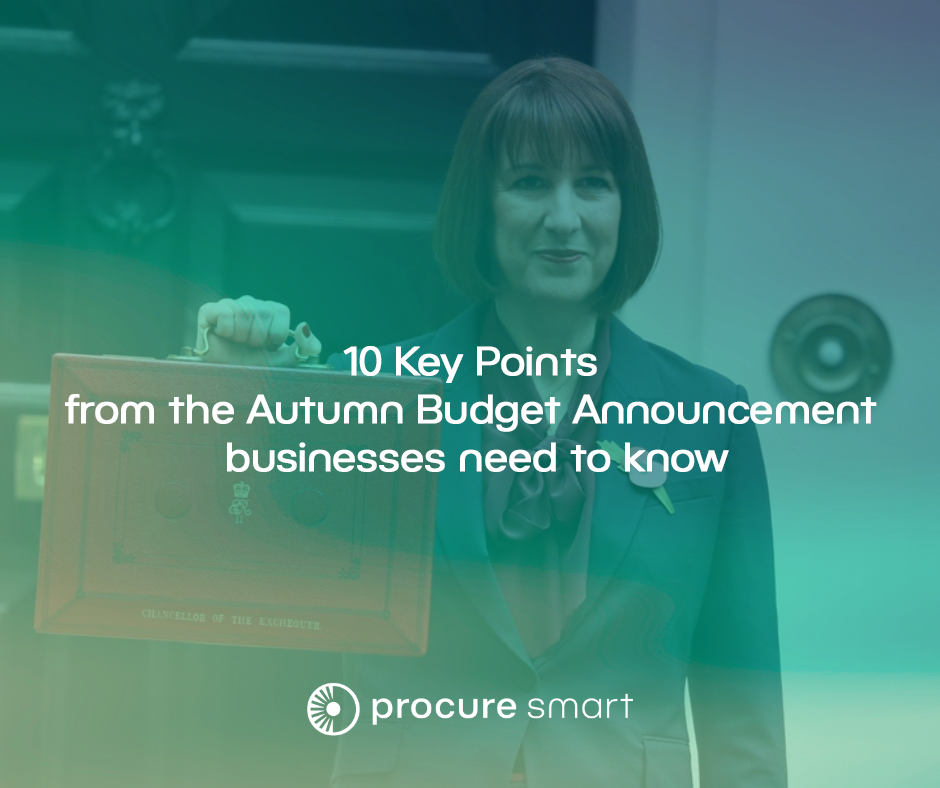Today (26/11/2025), Chancellor Rachel Reeves unveiled the Autumn Budget, although the Office for Budget Responsibility beat her to the punch, releasing the report before she had a chance to begin speaking. Here are 10 key points from the Autumn Budget that we think you and your business need to know.
1. Minimum Wage Increase
Great for employees, less great for employers. Higher wages mean increased costs for businesses yet again, following 2025’s National Insurance increase. While this may affect your margins in the short term, it could support higher spending and the wider economy over time.
2. Tax Brackets
Although the Chancellor kept to the promise of not increasing income tax, the freeze on these taxes will still affect some. Increases to wages could push some employees into higher tax brackets, which means more money for public services without hiking up income tax rates. Still, businesses may need to manage employee expectations on net pay.
3. National Insurance on Pensions
From 2029, any employee paying more than £2k into their pension scheme per financial year will pay national insurance on those contributions. This is worth discussing with employees, so they understand these changes. A benefit review may also be worthwhile.
4. Free Apprentices for many
The Chancellor confirmed costs for apprentices aged under 25 will be fully funded for many organisations from 2026, which increases Government investment and removes the remaining 5% contribution currently paid by most employers. This could help to offset increasing wage costs and support workforce development.
5. Increased Business Rates
Business properties worth over £500k will have their business rates increased. Larger businesses or those with premium premises should prepare for increased overheads and factor this into future budgets.
Although…
6. Decreased Business Rates
Retail, Leisure and Hospitality businesses will see their business rates permanently decreased. This will give many SMEs in those sectors more breathing room to invest, innovate and grow.
7. Start-up and Scale-up
Businesses can claim a 40% allowance on upfront investment costs on main-rate assets. This makes it easier for start-ups and scaling businesses to recover initial expenses and invest in growth.
8. Increased entrepreneurial investment Schemes
Investment limits for schemes like Enterprise Investment Scheme (EIS) and Venture Capital Trusts (VCT) are rising, making it easier for businesses to attract funding. This is particularly helpful for high-growth companies seeking capital and rewards investors with increased tax efficiencies on monies invested via these schemes.
9. UK Stock market listing relief & stamp duty exemption (three years)
Newly listed companies on UK markets will enjoy a three-year exemption from stamp duty. This aims to encourage more IPOs in the UK and reduce costs for businesses going public.
10. Capital Gains Tax relief cut
Capital Gains Tax Relief on business asset disposal has been cut from 100% to 50%. This means business owners will pay more tax when selling assets or exiting, so planning is essential.
At Procure Smart, we help businesses navigate these changes with expert advice, cost-saving strategies, and innovative solutions.
If you want to stay ahead and #GetSmart get in touch with us today.

